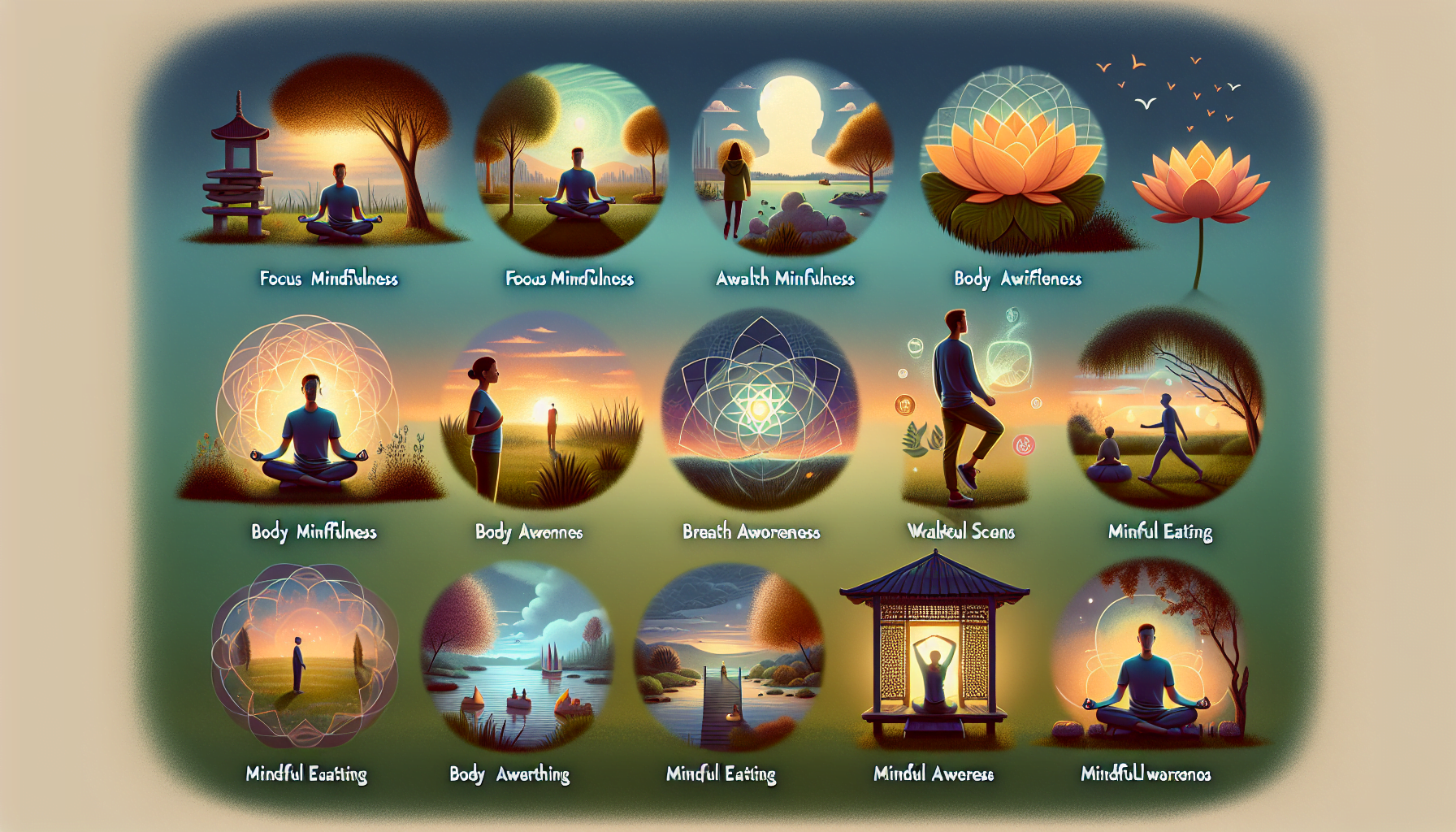Feeling overwhelmed by the hustle and bustle of daily life? You’re not alone. But there’s a powerful tool that can help you navigate the chaos: Mindfulness-Based Stress Reduction (MBSR). This practice has been transforming lives for decades, offering a way to find peace in a frantic world.
Key Takeaways
- Understand what Mindfulness-Based Stress Reduction (MBSR) is and its historical roots.
- Learn the core principles and techniques of MBSR.
- Discover the numerous benefits of mindfulness in reducing stress.
- Explore how meditation is central to the MBSR program.
- Find out how to integrate mindfulness into your daily life for better health and well-being.
- Access resources for learning and education in mindfulness practices.
Introduction to Mindfulness-Based Stress Reduction (MBSR)
Definition of MBSR
Mindfulness-Based Stress Reduction is a structured program that uses mindfulness meditation to alleviate suffering associated with physical, psychosomatic and psychiatric disorders.
Historical background and development by Jon Kabat-Zinn
Developed by Jon Kabat-Zinn in 1979, MBSR has its roots in traditional Buddhist teachings but is delivered in a secular format. Kabat-Zinn’s pioneering work at the University of Massachusetts Medical School has brought mindfulness into the mainstream of medicine and society.
The connection between mindfulness meditation and MBSR
Mindfulness meditation is the cornerstone of MBSR, teaching participants to focus on the present moment with acceptance and without judgment.

Core Principles of MBSR
Focus on the present moment
MBSR encourages living in the here and now, which can significantly reduce the stress of worrying about the past or future.
Cultivation of awareness
By cultivating awareness, individuals learn to recognize their habitual reactions to stress, creating space to choose how to respond.
Acceptance and non-judgmental attitude
Acceptance and a non-judgmental attitude are central to MBSR, helping to reduce the emotional impact of stressful events.

MBSR Techniques and Exercises
Focus mindfulness
Focus mindfulness involves paying attention to a single object, thought, or activity to train the mind to remain present.
Awareness mindfulness
Awareness mindfulness expands the focus to include a wider range of experiences, promoting a greater sense of calm and understanding.
Shifting from focus to awareness
MBSR teaches how to shift seamlessly from focused mindfulness to a broader awareness, which can be particularly helpful in managing stress.
Specific MBSR practices
- Breath awareness: Concentrating on the breath to anchor the mind in the present.
- Body scan meditation: A systematic scan of the body from head to toe, noting sensations without judgment.
- Object meditation: Focusing on a physical object to hone mindfulness skills.
- Mindful eating: Eating with full attention to the experience, promoting a healthier relationship with food.
- Walking meditation: Walking slowly and deliberately, fully aware of the body and surroundings.
- Mindful stretching: Combining mindfulness with physical movements to release tension.

Benefits of Mindfulness in Stress Reduction
Management of stress symptoms
MBSR has been shown to effectively manage symptoms of stress, including anxiety and chronic pain.
Emotional well-being
Participants often report improved mood and emotional well-being, feeling more resilient against daily stressors.
Physical health improvements
Research suggests that MBSR can lead to physical health improvements, such as lower blood pressure and improved sleep.
Increased relaxation and calmness
Regular practice of MBSR techniques can lead to increased relaxation and a greater sense of calmness in everyday life.

Meditation as a Central Element of MBSR
Simplifying meditation for stress reduction
MBSR demystifies meditation, making it accessible and practical for stress reduction.
Understanding the benefits of meditation
The benefits of meditation are vast, including enhanced focus, reduced stress, and improved emotional regulation.
Different types of meditation
MBSR incorporates various types of meditation, such as focused attention and open monitoring, to suit different needs and preferences.
Elements of effective meditation practice
Effective meditation practice involves consistency, a quiet environment, and an open mind.

Integrating Mindfulness into Daily Life
Everyday meditation practices
Incorporating meditation practices into daily routines can make mindfulness a natural part of life.
Building meditation skills for stress management
Building meditation skills through regular practice is key to managing stress effectively.
Mindfulness in routine activities
Applying mindfulness to routine activities can transform mundane tasks into moments of peace and clarity.
The Impact of MBSR on Health and Well-being
Research findings on MBSR effectiveness
Research has consistently supported the effectiveness of MBSR in improving mental and physical health.
Improvements in overall well-being
Participants of MBSR programs often experience significant improvements in their overall sense of well-being.
Long-term benefits for stress management
The long-term benefits of MBSR for stress management can lead to a more balanced and fulfilling life.

Learning and Education in Mindfulness Practices
The role of education in mindfulness and meditation
Education plays a crucial role in understanding and applying mindfulness and meditation effectively.
Resources for learning MBSR techniques
There are numerous resources available for those interested in learning MBSR techniques, including specialized clinics and online courses.
Specialized clinics and guidance for mindfulness training
Specialized clinics offer structured guidance and support for those looking to deepen their mindfulness practice.
Conclusion
Recap of the importance of MBSR in stress management
Mindfulness-Based Stress Reduction is a valuable tool for managing stress and improving quality of life.
Encouragement to explore mindfulness practices
Exploring mindfulness practices can lead to profound changes in how you cope with stress and approach life.
Final thoughts on adopting MBSR for a healthier lifestyle
Adopting MBSR practices can be a transformative step towards a healthier, more mindful lifestyle.
Mindfulness Stress Reduction FAQ
What is Mindfulness Stress Reduction?
Mindfulness Stress Reduction (MSR) is a therapeutic approach that combines mindfulness meditation and yoga to address stress, anxiety, pain, and illness. It was developed by Dr. Jon Kabat-Zinn at the University of Massachusetts Medical Center in the 1970s. The practice involves being aware of the present moment without judgment and helps individuals cope with everyday stress as well as stress related to health issues.
How does Mindfulness Stress Reduction work?
MSR works by helping individuals focus on the present moment through various mindfulness exercises and meditation. This focus on the present helps to interrupt the cycle of rumination and worry that often accompanies stress. By cultivating a state of nonjudgmental awareness, individuals learn to respond to stressors with clarity and calmness rather than reacting impulsively.
Can Mindfulness Stress Reduction help with anxiety?
Yes, Mindfulness Stress Reduction has been shown to be effective in reducing symptoms of anxiety. It helps individuals recognize and accept their anxious feelings without being overwhelmed by them, which can lead to a decrease in anxiety over time. Regular MSR practice can improve emotional regulation and lead to a more balanced mental state.
What is a typical Mindfulness Stress Reduction program like?
A typical MSR program runs for 8 weeks and includes weekly group sessions that teach mindfulness meditation, body awareness, and yoga. Participants also engage in daily home practices. The program is often accompanied by group discussions aimed at enhancing awareness in everyday life and coping with stress effectively.
Do I need any special equipment to practice Mindfulness Stress Reduction?
No special equipment is required to practice MSR. It can be done anywhere you can find a quiet space to sit or lie down comfortably. Some people may choose to use a meditation cushion or mat for added comfort during sitting or yoga practices, but these are not necessary to begin.
Is Mindfulness Stress Reduction based on a particular religion?
MSR is not based on any religion and is suitable for people of all backgrounds and beliefs. It is a secular practice that focuses on mindfulness and stress reduction techniques that can benefit anyone regardless of their religious or spiritual beliefs.
How long does it take to see benefits from Mindfulness Stress Reduction?
Benefits from MSR can sometimes be felt immediately as a sense of calm and presence in the moment. However, long-term benefits typically require regular practice over weeks or months. Consistency is key, and many individuals report significant improvements in stress levels and overall well-being after completing an 8-week program.
Can Mindfulness Stress Reduction be practiced alongside other therapies?
Yes, MSR can be a complementary practice alongside other therapies. It is often used in conjunction with traditional medical treatments and psychotherapy. However, it’s important to consult with healthcare professionals before combining MSR with other therapies, especially when dealing with specific health conditions.
What if I have trouble staying focused during Mindfulness Stress Reduction exercises?
It’s normal to have difficulty staying focused during mindfulness exercises, especially for beginners. The practice is not about achieving perfect focus but rather about recognizing when your mind has wandered and gently bringing your attention back to the present moment. With time and practice, your ability to maintain focus will improve.
Are there any risks associated with Mindfulness Stress Reduction?
MSR is generally considered safe for most people. However, for individuals dealing with severe mental health issues, certain mindfulness practices could potentially bring up uncomfortable emotions or thoughts. It’s important to approach MSR with care and potentially under the guidance of a qualified instructor or therapist if you have concerns.



